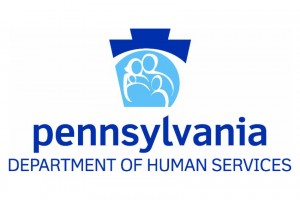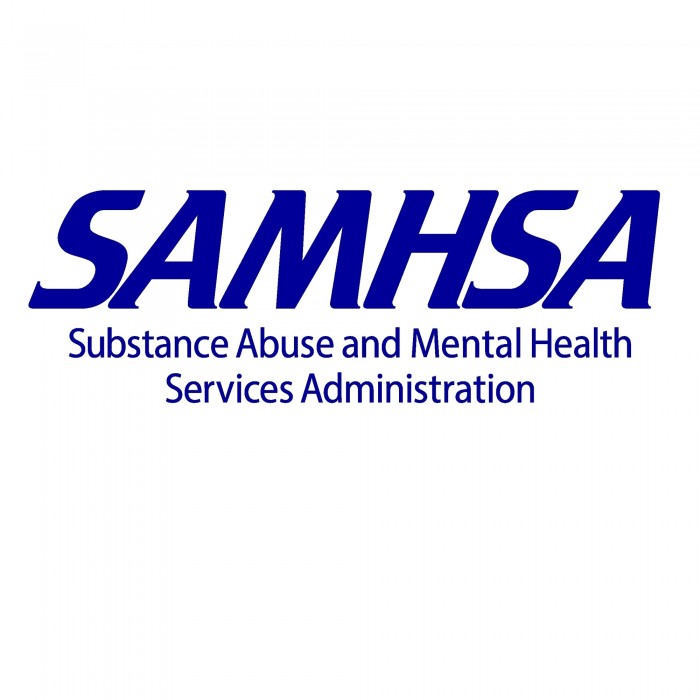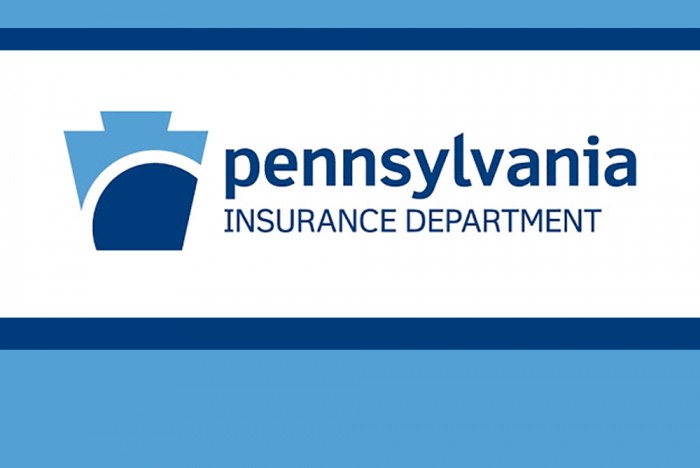Jack Phillips
Wolf Administration Reminds Pennsylvanians Struggling with MH, SUD that Help is Available
FOR IMMEDIATE RELEASE
May 13, 2020
Harrisburg, PA – The Department of Human Services (DHS) Secretary Teresa Miller and Department of Drug and Alcohol Programs (DDAP) Secretary Jennifer Smith today reminded Pennsylvanians who are struggling with mental health or substance use disorder issues that help is available. May is Mental Health Awareness Month, which seeks to raise awareness and understanding and to fight stigma of mental illness and substance use disorders so people know that they are never alone and help is available.
“Far too many people struggle with mental health or substance use disorder issues in silence, and only about half of people impacted seek treatment. Too often, stigma of behavioral health disorders keeps people from seeking the treatment they need,” said DHS Secretary Miller. “There is nothing wrong with reaching out for help when you need it, and there should be no shame in doing so. We know that this public health crisis will mean people may need an extra hand, both during the pandemic and after it has ended. DHS’s resources will be available, not just now, but in the months to follow as well.”
“Substance use disorder and mental illness do not discriminate regardless of age, race, or socioeconomic background,” said DDAP Secretary Smith. “Regardless if you are a Pennsylvanian with 15 years or 15 days in recovery, actively using substances, or on the brink of beginning – you are not alone, and help is available even during this pandemic. Everyday individuals overcome both mental illness and substance use disorder with the proper treatment, hope, and resiliency.”
The Wolf Administration has been committed to ensuring access to mental health care. Governor Wolf launched “Reach Out PA: Your Mental Health Matters” earlier this year as an initiative to remove barriers to mental health care and reduce stigma. The governor has reminded Pennsylvanians that there are myriad resources for people to turn for mental health needs.
DHS announced a statewide Support & Referral Helpline staffed by skilled and compassionate caseworkers available 24/7 to help Pennsylvanians struggling with anxiety and other challenging emotions due to the COVID-19 emergency and refer them to community-based resources that can further help to meet individual needs. The toll-free, round-the-clock support line is available at 1-855-284-2494. For TTY, dial 724-631-5600.
Individuals with substance use disorder seeking treatment and recovery resources for themselves or a loved one can call the toll-free PA Get Help Now helpline at 1-800-662-HELP (4357). The 24/7 helpline is staffed by trained professionals who directly connect callers to local supports and services. A live chat option is also available online or via text message at 717-216-0905 for those seeking help who may not be comfortable speaking to a helpline operator.
Many other resources also remain available to Pennsylvanians in need of support, including:
- National Suicide Prevention Lifeline: 1-800-273-TALK (8255)
- Línea Nacional de Prevención del Suicidio: 1-888-628-9454
- Crisis Text Line: Text “PA” to 741-741
- Safe2Say: 1-844-723-2729 or www.safe2saypa.org
- Veteran Crisis Line: 1-800-273-TALK (8255)
- Disaster Distress Helpline: 1-800-985-5990
- Get Help Now Hotline (for substance use disorders): 1-800-662-4357
Available online resources:
- Pennsylvania’s comprehensive mental health resources, Mental Health in PA.
- Mental Health America for general information and COVID-19-specific resources.
- Get Help Now for substance use disorder and alcohol treatment.
The uncertain economic climate and challenges making ends meet and accessing essential needs may be creating additional stress and anxiety for people around Pennsylvania. Resources are available in your community to help you meet these needs. The United Way of Pennsylvania can help connect you to these resources. Text your zip code to 898-211 to be connected to programs and resources in your community or visit www.uwp.org. People in need of assistance can also visit www.compass.state.pa.us to learn more and apply for assistance programs that can help with health care, food, and other needs.
Visit the PA Department of Health’s dedicated Coronavirus webpage for the most up-to-date information regarding COVID-19.
Additional resources for citizens and DHS providers related to COVID-19 is available here.
For more information on the Department of Drug and Alcohol Programs and treatment options around the commonwealth, visit www.ddap.pa.gov.
MEDIA CONTACT: Erin James, DHS – ra-pwdhspressoffice@pa.gov
Rachel Kostelac, DDAP, 717-329-0591
# # #
DHS Reminds Pennsylvanians Online Services are Available
FOR IMMEDIATE RELEASE
May 13, 2020
Harrisburg, PA – The Department of Human Services (DHS) is reminding Pennsylvanians that while all county assistance offices (CAOs) statewide remain closed to the public, online services remain available.
CAOs in counties moving to the yellow phase will reopen following adjustments to facilities necessary to keep staff and clients safe. Pennsylvanians are encouraged to use DHS’ online applications and resources to apply for benefits or submit paperwork as necessary.
“DHS is continuing to connect eligible Pennsylvanians to the programs they need through our online services. No one should forego these services if they need them, and anyone who is struggling to make ends meet or needs assistance should know that help is available,” said DHS Secretary Teresa Miller. “While our CAOs are still closed to the public, we are still receiving and processing applications for our public assistance programs. Clients should take advantage of online resources like COMPASS and the myCOMPASS PA mobile app as counties begin to reopen to mitigate risk while we continue to face the threat of COVID-19.”
The following key services can be accessed online through COMPASS and the myCOMPASS PA mobile app without going into the CAO:
- Apply for Medical Assistance, cash assistance, SNAP or LIHEAP (only on COMPASS)
- Submit benefit renewal information
- Review benefits and case record information
- Report a change in case information
- Upload verification documents
DHS administers public assistance programs that helps Pennsylvanians maintain access to health care, food, and other essential needs when people need extra help and during periods of economic uncertainty like what we currently face. Applications for benefits and renewals can be submitted online at www.compass.state.pa.us. Eligibility determinations, application processing, and benefit issuance will continue for Pennsylvanians in all counties while the CAOs are closed to the public. Clients who prefer to submit paper documentation can mail documents to their local CAO or leave documents in a CAO’s secure drop box, if available.
Clients in Philadelphia with questions, information to report about their case, or who need a paper application mailed to them should call the Philadelphia Customer Service Center at 215-560-7226. Clients in all other counties can call the Statewide Customer Service Center at 1-877-395-8930. Call volumes and wait times may be higher than usual, and we appreciate the public’s patience with the dedicated commonwealth employees working to assist clients under stressful circumstances.
DHS is continuing to process applications for SNAP throughout the public health crisis. All applications are reviewed for expedited service which can be issued in five days for eligible applicants. EBT payments are still scheduled to occur during the closure and activated EBT cards can still be used as usual at ATMs and in stores at point-of-sale machines if the client has a balance. Balance and transaction inquiries as well as EBT card replacement can be requested from DHS’s EBT contractor, Conduent, at 888-328-7366.
For Medicaid, contact the Pennsylvania Consumer Service Center at 1-866-550-4355 to apply over the phone. Pennsylvanians can also complete semi-annual renewals and check their benefit status through the myCOMPASS PA mobile app. Managed Care Organizations (MCO) providing Medicaid coverage will be available to address claims and coverage issues with clients, and Medicaid Access cards can still be used at participating medical facilities to obtain care.
Visit pa.gov for a “Responding to COVID-19” guide or the Pennsylvania Department of Health’s dedicated Coronavirus webpage for the most up-to-date information regarding COVID-19.
Guidance to DHS providers related to COVID-19 is available here.
MEDIA CONTACT: Erin James, ra-pwdhspressoffice@pa.gov
# # #
SAMHSA Personal Protection Letter for Treatment Providers
The Substance Abuse and Mental Health Services Administration (SAMHSA) has drafted a letter for mental health and drug and alcohol providers to use when they are trying to secure personal protective equipment (PPE). The letter designates mental health and drug and alcohol providers as essential, so please use the SAMHSA letter when trying to procure PPEs from suppliers. Questions, please contact Jack Phillips.
Risks, Increased Liability with Non-Compliance of Business Closure Orders
FOR IMMEDIATE RELEASE
May 11, 2020
Harrisburg, PA – Pennsylvania Insurance Commissioner Jessica Altman today reminded businesses of the importance of complying with Governor Tom Wolf and Department of Health Secretary Rachel Levine’s orders – for counties in both the red and yellow phases.
In addition to the critical public health objectives, Commissioner Altman warned non-compliant businesses defying the governor and secretary’s business closure orders that many insurance policies contain provisions that exclude coverage for businesses or individuals engaging in illegal acts or conduct. These exclusions may apply to property coverage, liability coverage, advertising injury coverage, and a host of other essential coverages.
“Businesses and residents rely on insurance coverage to protect them from liability, pay for covered losses, and compensate those who may be injured or harmed,” said Altman. “It is the duty of every business and resident in Pennsylvania to ensure that they and the public at large are provided with the maximum level of protection afforded by insurance. Any actions that could potentially create coverage gaps are the antitheses of the civil duty required of all residents during these times of emergency.”
This reminder is offered to all Pennsylvania businesses and residents, regardless of in what county they reside. The department strongly encourages businesses or residents who have questions or concerns regarding insurance coverage during the phased reopening of businesses in this commonwealth to reach out to their insurance carrier to discuss concerns.
Find more information on Gov. Wolf’s latest orders here.
FAQs for businesses in each phase can be found here.
MEDIA CONTACT: Thaisa Jones, thajones@pa.gov
# # #
Gov. Wolf, Attorney General Shapiro Announce Protections from Foreclosures and Evictions Through July 10
Governor Tom Wolf was joined by Attorney General Josh Shapiro today to announce that he signed an executive order that protects Pennsylvanians from foreclosures or evictions through July 10. The action builds on a Pennsylvania Supreme Court order which closed court eviction proceedings until May 11 and ensures no renter or homeowner will be removed from their home for 60 more days.
“At a time when people need to stay home to protect their heath, they should not have to worry about losing their homes,” said Governor Wolf. “Ensuring that people can remain in their homes will help them to better protect their loved ones. It gives families the comfort of knowing they will have a place to live while all of us work together to fight COVID-19 and prepare to move Pennsylvania forward.”
“I commend the Governor for his decision to delay eviction and foreclosure proceedings. We know it’s critical for public health, and for our economic recovery, that people stay in their homes during this emergency,” said Attorney General Shapiro. “This order gives people struggling with lost income something they can count on — a roof over their heads.”
In almost all circumstances, renters and homeowners are required to continue making monthly payments. If you are a Pennsylvanian struggling to make your monthly payments, you should contact your landlord or mortgage servicer immediately.
The Wolf Administration provided recommendations last week to stem foreclosures, evictions and help people experiencing homelessness. The Department of Human Services activated the commonwealth’s Sheltering Taskforce and is working with local and state partners to coordinate resources for people without housing. The Department of Community and Economic Development is also accepting applications for Emergency Solutions Grants to assist with the rapid rehousing of people experiencing homelessness, street outreach, homelessness prevention, and emergency shelter activities.
PHFA is also taking action to help homeowners and renters. The agency has stopped foreclosures and evictions and is offering forbearances with late fee waivers to homeowners with a PHFA mortgage who are experiencing a financial hardship because of COVID-19. PHFA also developed a list of renters’ rights and responsibilities to clarify the situation for apartment residents and is working with landlords and property managers to distribute it to renters. PHFA is also encouraging Low-Income Housing Tax Credit building managers to be flexible on rent payments and to waive late fees for tenants whose employment has been affected by the crisis.
“During the past few weeks, we’ve had great cooperation from Pennsylvanians who understand that staying home is not just about protecting themselves, it’s about protecting everyone in the community,” said Gov. Wolf. This executive order takes one more burden off people who are struggling and gives them more time to get back on their feet.”
More helpful information is available from the following:
Emergency Assistance Program to Help Low-Income Families Amidst COVID-19
FOR IMMEDIATE RELEASE
May 8, 2020
Harrisburg, PA – Department of Human Services (DHS) Secretary Teresa Miller today announced an Emergency Assistance Program (EAP) to help low-income families who lost wages experiencing financial challenges due to the COVID-19 pandemic. Families who qualify will be eligible for a one-time payment to assist them in meeting basic needs and help them secure more stable financial footing in the future.
“The economic disruption caused by this pandemic is affecting families and communities across Pennsylvania in different ways. For many low-income Pennsylvanians, especially those awaiting unemployment compensation, this disruption could be completely destabilizing,” said Secretary Miller. “The Wolf Administration is committed to helping families weather this uncertain period, and the EAP will be another resource to help families avoid reaching even more difficult situations as we recover from this crisis together.”
The program will use existing Temporary Assistance for Needy Families (TANF) funds to provide support to low-income families who qualify. The program will be open to families with a child under the age of 18 or a woman who is currently pregnant. In order to qualify, families must have at least one person in the household who was employed as of March 11, 2020 and experienced an hour or wage reduction of at least 50 percent for two weeks or more or lost employment entirely due to the public health crisis.
Families must meet income limits of 150 percent of the Federal Poverty Guidelines and have no more than $1,000 in a savings or checking account.
| Household Size | Monthly Income Limit | Annual Income Limit |
| 1 | $1,595 | $19,140 |
| 2 | $2,155 | $25,860 |
| 3 | $2,715 | $32,580 |
| 4 | $3,275 | $39,300 |
| 5 | $3,835 | $46,020 |
| 6 | $4,395 | $52,740 |
| 7 | $4,955 | $59,460 |
| 8 | $5,515 | $66,180 |
| 9 | $6,075 | $72,900 |
| 10 | $6,635 | $79,620 |
| Each Additional Person | $560 | $6,720 |
Qualifying families will be issued a one-time grant equal to two months of TANF benefits. The average monthly TANF grant for a family of three is $403, so a qualifying family of three would receive a one-time grant of $806 through the program. Information on monthly grants by household size and county is available online here. Funds will be issued through an electronic benefit transfer (EBT) card.
The emergency assistance application is available online at www.compass.state.pa.us. Families should be prepared to submit all necessary documentation with their application to expedite processing and avoid having to apply again. Applications will be accepted beginning Monday, May 11 through June 12 or until all funds are expended.
Secretary Miller also provided an update on the number of public assistance applications received by DHS. Applications are generally down from where they were before County Assistance Offices began to close in Pennsylvania. Applications did begin to increase to pre-closure levels towards the second half of April but are declining again. In previous economic downturns, there has been a delay in people turning to Medicaid and other forms of public assistance.
“As we navigate this pandemic and the period of recovery that will follow, I urge all Pennsylvanians to keep these programs in the back of their minds should they or someone they know need an extra hand,” said Secretary Miller. “Life has changed for all of us in different ways, and you may be a little uneasy about your financial situation. If you are in this situation, you do not have to go through this alone or feel ashamed asking for help.”
Pennsylvanians can apply for Medicaid, the EAP, the Supplemental Nutrition Assistance Program (SNAP), the Children’s Health Insurance Program (CHIP), and other public assistance programs at any time through DHS’ online COMPASS application at www.compass.state.pa.us. Those who prefer to submit paper applications can mail documents to their local County Assistance Office (CAO) or leave documents in a CAO’s secure drop box, if available. CAOs are still closed to the public, but mail and drop boxes are being monitored so applications can be processed.
Visit pa.gov for a “Responding to COVID-19” guide or the Pennsylvania Department of Health’s dedicated Coronavirus webpage for the most up-to-date information regarding COVID-19.
Guidance to DHS providers related to COVID-19 is available here.
MEDIA CONTACT: Erin James, DHS – ra-pwdhspressoffice@pa.gov
# # #



















